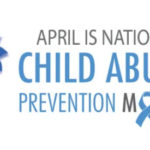Aphasia Affects People of All Ages
Film fans were recently shocked to learn of the health struggles of movie star Bruce Willis, whose health issues were made public in 2022. Since then, Willis has largely retreated from the public eye. Willis was initially diagnosed with aphasia, a disorder that affects a person’s speech, writing ability, and comprehension of spoken and written language, according to the Mayo Clinic. However, aphasia proved to be only one component of Willis’ later diagnosis of frontotemporal dementia.
Aphasia can result from an illness like dementia, an injury, or a complication of a stroke or traumatic brain injury. When blood fails to supply the brain’s cells with oxygen, they die and produce deficits. Aphasia may also result from temporary conditions that disrupt brain function, such as migraine headaches. The National Aphasia Association says nearly 180,000 Americans develop aphasia each year.
Families may feel that something is not right when a loved one has trouble finding words, reading, or communicating effectively. However, aphasia is often discovered by physicians when they treat patients for traumatic brain injuries or view a patient’s brain images. If aphasia is suspected, the physician may recommend a consultation with a speech-language pathologist for a comprehensive examination and testing. Sometimes, aphasia symptoms resolve on their own without treatment. Other patients may need help regaining their ability to communicate through various methods, such as speech-language therapy; nonverbal communication therapies, such as computers or pictures; group therapy; and language simplification using short, simple sentences and repeating words or phrases as needed.
Aphasia affects communication, but symptoms may improve over time. For those left with some loss of language skills, therapy may help to address those deficits.












